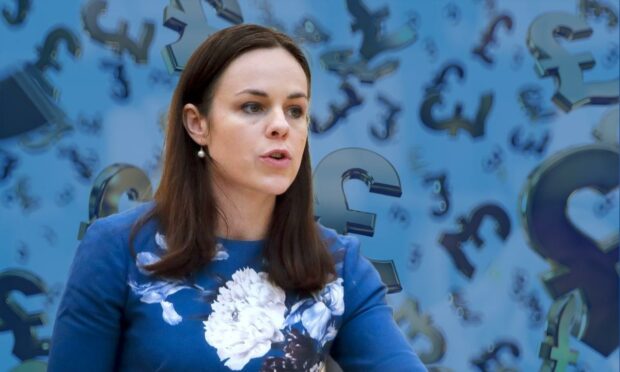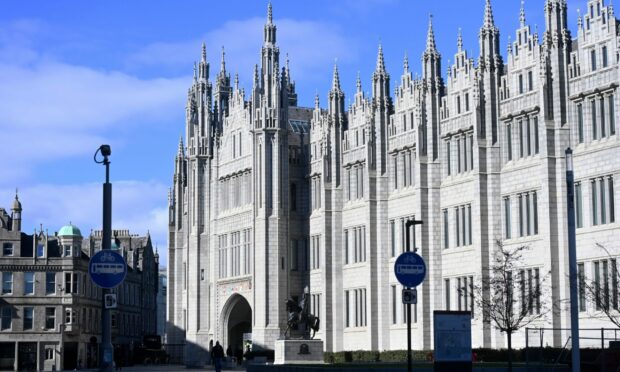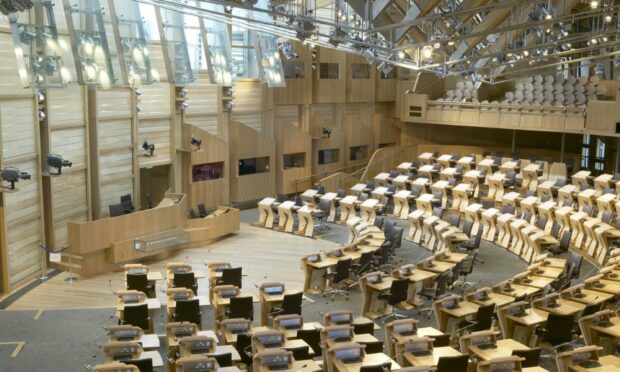Finance Secretary Kate Forbes promised an extra £120 million for hard-pressed local councils which she claims will stop “inflation-busting” tax rises.
It comes after more funding was made available by the UK Government for 2022-23 as a result of “new information” coming to light in the “last few days”.
Councils will be given “complete flexibility” to allocate that money as they wish but it was suggested the additional funding should head off council tax rises.
Ms Forbes admitted she faced “some hard choices” in setting the budget for the year ahead during the Covid-19 pandemic and cost of living crisis.
Here’s our look at the spending proposals for the year ahead as the budget passes its first stage in the Scottish Parliament:
What are the SNP’s key priorities?
Finance Secretary Kate Forbes told MSPs the budget was “clear in its aims” and will “tackle climate emergency, will support economic recovery and will reduce poverty”.
The SNP minister said it would deliver on other priority commitments including free bus travel for young people, non-domestic rates relief for businesses and “substantial increases” in health and social care spending.
It is the first budget under the new SNP-Green administration.
Key measures include:
- £802m of non-domestic rates relief for key sectors.
- Record funding of £18 billion to health and social care services.
- £197m to double the Scottish Child payment.
- Local authorities will be given full “flexibility” to raise council tax.
- The first £20m from £500m Just Transition Fund for the north-east and Moray.
- £110m to provide free bus travel for under 22s.
Why are councils furious?
The Scottish budget was met with widespread anger from local authorities the length and breadth of the country.
The budget allocation for councils had stood at more than £11 billion – a real-terms cut of £371m.
Choose between delivering public services on the cheap or punishing local residents with drastic council tax hikes.
– Tory MSP Liz Smith
This prompted council leaders to hit out at the “totally unacceptable” settlement on offer from the Scottish Government.
However, Ms Forbes announced extra funding of £120m for councils on Thursday, which can be spent in 2022-23.
Councils will therefore receive more than £12.6bn but still face real-terms cuts of £251m, leading to tough choices for local authorities.
The SNP minister said councils had asked for an additional £100m to deal with “additional pressures”.
She added: “We have heard them and listened and we are going to go further.”
All 32 local government leaders are due to discuss the £120m offer on Friday.
What does it mean for local services?
Councils and opposition parties warned a cut to the local government budget will result on acute pressures to services.
Liberal Democrat MSP Willie Rennie said local councils would not be “grateful that the cabinet secretary has just taken her foot off their neck a little bit”, as he warned of “massive cuts” for local councils.
North-east Conservative MSP Douglas Lumsden, who is also an Aberdeen city councillor, said local authorities are “concerned that with funding being cut essential services can no longer be delivered”.
In Aberdeen, funding for free childcare has been cut by £4.6 million, to the surprise of education chiefs.
There are fears the expansion of free childcare in the Granite City could be “in jeopardy” but the Scottish Government say the allocation reflects the fact there are “fewer children eligible for the offer now” than when the grant was agreed in 2018.
The impacts are also being felt in Dundee where a raft of cuts have been approved to planned park upgrades, road safety and dog waste bins.
Scottish Conservative finance and economy spokeswoman, Liz Smith, said Scotland’s 32 councils will “now have to choose between delivering public services on the cheap or punishing local residents with drastic council tax hikes”.
But what about council tax?
Scottish councils have been left with “complete flexibility” to set council tax rates, ending the previous freeze.
There have been fears this left households facing “massive council tax rises” at a time of financial difficulty for many.
I’ve identified an additional £120m for Local Government, funding from this year’s Budget which I will carry forward through the Scotland Reserve. This is the equivalent of a 4% increase in Council Tax, so there’s no requirement for inflation-busting increases next year.
— Kate Forbes MSP (@_KateForbes) January 27, 2022
But Ms Forbes said the additional £120m of funding for local councils is the equivalent of a 4% increase to council tax.
Councils will have full flexibility on how this is spent but the SNP minister said this means there is no need for any “inflation-busting” council tax rises.
How is Covid and cost of living crisis having an impact?
The finance secretary admitted the budget is a “challenging” one in the absence of Covid-related funding from the UK Government.
She said with this funding removed, the “day-to-day funding is less compared to the current year at a time when we undeniably need to invest in the economy”.
Ms Forbes added: “This is a budget of choices – some hard choices – but I believe that we have made the right choices.”
Scottish Liberal Democrat leader Alex Cole-Hamilton said the budget fails to recognise the reality of the cost-of-living crisis.
He said: “With the cost of food and energy soaring, not to mention the increase in national insurance, and the cut to Universal Credit many people are feeling the squeeze like never before. It’s not clear that this budget recognises that reality.”
What happens next?
The Scottish budget bill passed its first stage on January 27, which is where the general principles of the bill are debated.
It will come before MSPs again where changes to the bill can be suggested by Scottish Government ministers.
The changes will be considered by the finance and constitution committee during this stage.
The third and final stage sees MSPs decide on any further changes proposed by Scottish Government ministers and to vote on whether to pass the bill.
If the budget bill is passed and receives Royal Assent, it becomes an Act.
The Scottish Government aims to have the bill passed by the end of February each year so it is ready for the start of the new financial year in April.





